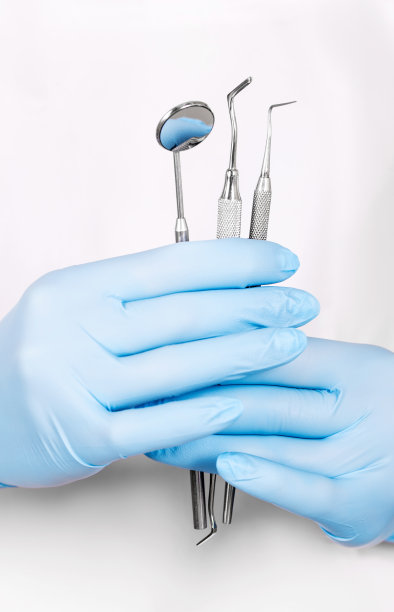Summary: Preparing for a dental filling is a crucial aspect of ensuring optimal oral health and a smooth recovery process. This article outlines essential precautions to take prior to undergoing the procedure, focusing on aspects such as understanding the procedure, communicating with your dentist, managing anxiety, and taking care of your oral hygiene. By following these guidelines, patients can enhance their experience, promote faster healing, and reduce the likelihood of complications. Adopting a proactive approach before the dental filling will not only contribute to the success of the treatment but also improve overall dental health in the long run.
1. Understand the Dental Filling Procedure

Before undergoing a dental filling, it is imperative to have a clear understanding of what the procedure entails. Knowing the steps involved can greatly reduce apprehension during the appointment. A dental filling is performed to repair a tooth affected by decay, fracture, or wear. The dentists will first numb the area using a local anesthetic, allowing for a pain-free experience during the procedure.
Additionally, understanding the types of materials used for fillings, such as amalgam, composite, or ceramic, can help patients make informed decisions. Each material has its longevity, aesthetic, and cost implications, so discussing these options with your dentist beforehand is essential. Awareness of these factors contributes positively to the overall experience.
Moreover, familiarize yourself with potential after-effects of getting a dental filling. Its common to experience minor discomfort, sensitivity, or swelling post-procedure. Knowing what to expect can ease anxiety and prepare you mentally for recovery.
2. Communicate with Your Dentist Effectively
Effective communication with your dentist is a cornerstone of a successful dental filling procedure. Before the appointment, make a list of any questions or concerns you might have, such as the filling material options, duration of the procedure, and aftercare recommendations. This proactive approach encourages a comprehensive discussion during your visit.
Furthermore, it鈥檚 critical to inform your dentist of any medical conditions, allergies, or medications youre currently taking. This information can significantly influence the choice of anesthetic or materials used. Transparency allows for a tailored approach, ensuring your safety and comfort during the filling.
Lastly, express any fears or anxieties you may have about the procedure. Dentists are accustomed to addressing patient apprehension and can suggest techniques or medications to help alleviate your stress. Engaging in this candid dialogue fosters a trusting relationship and enhances the patient experience.
3. Management of Anxiety and Stress Levels
Anxiety can often impede the dental experience; therefore, managing stress levels prior to your appointment is vital. Techniques such as deep breathing exercises or mindfulness can ground you before the procedure. Preparing mentally allows you to approach the filling with a more relaxed mindset.
Consider involving a support person who can accompany you to the appointment. Their presence can provide comfort and reassurance while also helping you focus on calming strategies during the session. Additionally, using music or audiobooks to distract yourself can turn the procedure into a more pleasant experience.
Lastly, schedule your appointment at a time when you feel most relaxed. Avoid days with significant stress or other commitments, as this can heighten anxiety. A calm and collected approach will enhance your overall experience during the dental filling.
4. Prioritize Oral Hygiene Before the Procedure
Maintaining optimal oral hygiene before a dental filling is vital for ensuring a successful procedure and efficient healing. Prior to your appointment, be diligent about your brushing and flossing routine. This not only helps to keep the mouth clean but also reduces the risk of infection post-procedure.
Additionally, continue to follow a balanced diet that avoids sugary foods and drinks, as these can exacerbate tooth decay or sensitivities. Instead, focus on consuming nutrient-rich foods that promote dental health, such as fruits, vegetables, and dairy products.
Finally, consider scheduling a dental cleaning before your filling appointment. This cleaning can help remove plaque build-up and provide a fresh start, reducing the likelihood of complications. A proactive approach to your oral hygiene will benefit both the filling procedure and your long-term dental health.
Summary:
In preparation for a dental filling, understanding the procedure, effective communication with your dentist, managing anxiety, and maintaining good oral hygiene are essential steps for ensuring optimal outcomes. These precautions not only enhance your experience but also play a significant role in recovery and overall oral health.
This article is compiled by Vickong Dental and the content is for reference only
Vickong Dental
Vickong Dental is a large medical group established in Hong Kong in 2008 by professors from well-known medical universities in Guangdong and Hong Kong, as well as medical doctors from key national '985' universities (including Master's supervisors and senior professors). The chain of branches brings together expert dentists with PhDs and Master's degrees from Hong Kong and Mainland China, committed to providing high-quality dental treatment.
"Vickong Dental Practices the University Motto of 'Healing and Serving Society,' with a Stable Operation for Sixteen Years. It Has Been honored with Hong Kong Enterprise Leaders's Choice,' and is a Global Trusted Implant Center for the Nobel Implant System. Recommended by Hong Kong Metro Broadcast and Guangdong Television, it Serves Customers from Over Thirty Countries and Regions, Gaining the Trust and Favor of Citizens from the Guangdong-Hong Kong-Macau Greater Bay Area and Surrounding Cities.

Thousands of customers' unanimous praise
The most recognized and highly recommended dental service by customers in the Guangdong-Hong Kong-Macau Greater Bay Area
We Ensure You Receive Detailed Care and Attention Here
Hong Kong standards, Shenzhen prices, Your Trusted English-speaking dentists

Vickong Dental Medical-Grade Instrument Disinfection Process
Vickong Dental Medical-Grade Instrument Disinfection Process

Vickong Dental Chain: A Warm and Comfortable Environment for Treatment






Appointment Hours

Q&A
Why choose Vickong Dental?
Vickong Dental practices the university motto 「Medicine to Benefit Society」, with each branch bringing together highly qualified dentists with doctoral and master’s degrees from Hong Kong and the Mainland, and has maintained seventeen years of steady operation。Recipient of 「2024 Hong Kong Enterprise Leaders Brand」, 「2025 Hong Kong Enterprise Leaders Brand」, a Nobel Biocare Global Trusted Implant Center, and a brand recommended by Metro Radio Hong Kong and Guangdong TV。
To date, we have served customers from more than thirty countries and regions,earning exceptionally high word-of-mouth recognition and trusted recommendations from residents across the Guangdong-Hong Kong-Macao Greater Bay Area and surrounding cities
We have eight major branches in Zhuhai、Shenzhen,and a consultation and service assurance center in Hong Kong,so you can book a free consultation at any time for any questions,which is very reassuring.
If I do not accept the quotation after the CT scan, will I be charged??
No! As long as the actual treatment has not started, you will not be charged any fees.
Will there be any additional charges during the treatment process?
No, there won’t be any additional charges. Before treatment begins, we will clearly explain the treatment plan and its corresponding fees. Only after the patient agrees and signs the consent form will we proceed with the dental service.
Can I pay in Hong Kong dollars?
Yes. Vickong Dental accepts payment in Hong Kong dollars. The amount will be converted based on the exchange rate of the day, and the applicable rate will be clearly communicated to you in advance.
Can I reschedule my appointment at any time?
Yes. Please contact us via **WeChat** or **WhatsApp** as early as possible, providing your original appointment time and details, along with your preferred new date and time slot for rescheduling.













